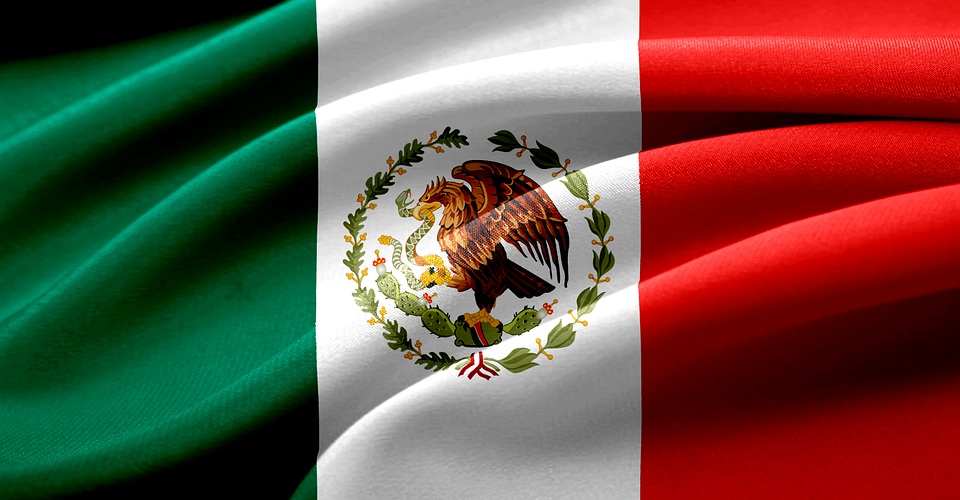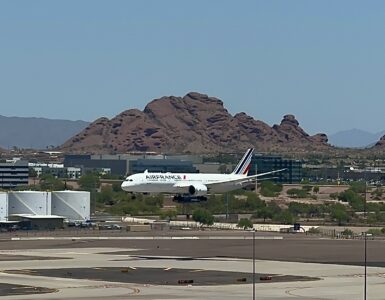Businesses in Mexico are still actively pursuing trade and economic development with Arizona and North America despite occasionally harsh political rhetoric from presidents across both borders, a Phoenix trade representative told community and business leaders in Arizona Thursday.
“Mexico has been able to develop a framework over the past 25 years where the private sector can be competitive in an open market economy,” said José Andrés García Rosales, Partner at Mexico City firm Estrategia Global and Phoenix’s Trade Representative in Mexico. “Under this circumstance, external and internal factors will definitely affect their performance, but by no means will concentration of power at a federal or legislative level be the determining (factor) as it was in past decades.”
That’s largely because of the success of the 25-year-old North American Free Trade Agreement (NAFTA) that brought open trade between the United States, Canada and Mexico, García said. Today, Mexico is the world’s fourth largest exporter of automobiles.
While it’s too soon to predict what lies ahead as Mexico adjusts to its new leader, President Andrés Manuel López Obrador, trade between two of the world’s largest economies should continue to flourish, he said.
Too soon to foretell future
García was in Phoenix to discuss the first 100 days of President Obrador’s administration and what it foretells for commerce.
Obrador’s election represents a stunning shift of power for the country, García said. After winning the most votes of any president, his presidency was sealed with majority support in both houses of Congress, something not seen since 1997.
Long a fixture in Mexican politics, Obrador’s campaign promises roused the public: remove government waste, end corruption, provide scholarships for millions of students, double pensions for senior citizens.
Since taking office, Obrador has taken center stage, holding press conferences daily to talk about his social agenda or corruption in prior “neo-liberal” administrations in Mexico.
But he has tread carefully when it comes to business with America. Many times, he has stated the need to retain a good relationship for the sake of the economy and Mexican citizens.
While Obrador has followed through on some social reforms, his economic agenda is yet to surface.
Doubts over future government policy were one of the reasons cited behind the decision to slash its forecast for expansion of Mexico’s economy this year to 1.6 percent from 2.1 percent, García said.
Rating agencies also warned that they will downgrade Mexico’s credit scores if it cannot turn around Pemex, the state-owned oil company.
Obrador also angered many when he canceled construction of the partially completed $13-billion new Mexico City International Airport project, the largest public works project ever undertaken. He alleged contracts were rigged.
Economic development plans
The president has laid out a plan for economic development that focuses on building infrastructure in rural and struggling economies, particularly in southern Mexico. He’s also called for more domestic production of gas and oil to reduce dependence on imports.
Among his economic development proposals:
- Boost the border economy by reducing the value-added tax from 16 to 8 percent and the income tax from 33 to 20 percent in cities within 30 kilometers of the border
- Develop the Mayan Train, a 900-kilometer rail line that will connect the southeast states of Quintana Roo, Campeche and Chiapas to consolidate the region as a top archeological destination while generating development of isolated rural areas
- Rehabilitate the state-owned fertilizer company to stabilize domestic products and decrease dependence on nitrogen fertilizer imports
- Increase oil and gas production to reduce dependence on external energy sources by overhauling the Bicentenario refinery in Tula and developing a similar refinery in the Gulf of Mexico.
- Accelerate transition to renewable sources of energy
- Decentralize ministries and entities outside of Mexico City and create two new agencies, the Federal Mining Agency and the Federal Fishing Agency
Businesses are taking the lead
As Mexico enters a new era, the business world is watching. While the future is never certain, there are positive signs for healthy trade to continue, said Antonio Proto, director of the Phoenix Northern Mexico Office of Economic Development in Hermosillo, Sonora.
Many of the “new” local and state leaders across the country had prior public positions, making the transition more seamless, said Proto, who attended the event.
Businesses also have been taking the lead.
“Because of the uncertain elections on both sides of the border, business chambers have stepped up and they are looking to make better relationships with Arizona,” Proto said. “They’re not looking to government to open doors.”















Add comment